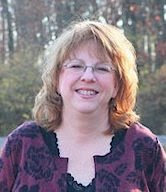Have you ever had one of those moments when you suddenly know yourself for who you are?
I remember being in my Sophmore year of high school, and being the annoying kid who wanted to know what came next in the outlining format. You know:
I.
II.
- A.
B.
- 1.
2.
- a.
b.
- i.
ii.
I guess I just feel better getting all the details down, not just the high level stuff.
Of course, this desire to organize didn't flow through to all my school work. I also have a vivid memory of my Senior year research paper. It was a compare/contrast paper on The Once and Future King, by TH White and, I believe, Idylls of the King by Alfred Tennyson. I still have my original copy of The Once and Future King. But I digress.
So I spent weeks taking notes from all the reference books I checked out of the library. I had a stack of notecards, basically cataloguing every fact I'd read, but I had no idea of the structure of my paper. So there I sat, in the middle of my mother's living room, surrounded by notecards and piles of books, sobbing.
Until recently, I've been able to laugh over this image. But I now have a 15-year-old daughter of my own and I'm having more and more trouble seeing the humor in the situation.
But the point is, this is who I am. The person who loves structure, and also wants to know everything I can about whatever I research, but am not always good at putting the two things together. My husband, who never reads fiction unless I force him, is actually a good advisor. One night fairly recently, we were discussing my frustration over this whole outlining thing. How I'm able to write non-fiction documents without any trouble at all, but I just stumble all over myself trying to write a complete novel without an outline. I want to be an organic writer. One of those people who can just sit down and write, fully formed plots appearing on the page. He pointed out that this just isn't who I am. It's not how my brain works. If I'm going to do this, I'm going to have to write an outline.
I need some mentors.
There are, of course, many methods to plot a book (at least I think there must be), but after some thought last summer, before I "Refused the Call" of plotting and went back to my old, unsuccessful ways (reached my self-imposed time limit of summer's end for plotting), I determined that my story fit well with a Hero's Journey structure.
The purpose of a mentor is to prepare the hero to face the unknown. They may provide knowledge (something I definately need), guidance, or magical equipment (oh, if only it was this easy!).
Where to find my mentors? Where I always go to find new information, of course. Books! I already had a stack of books on writing. But what I needed was books focused on plotting, and story structure. And then I needed to decide where to begin. For recommendations on these books, I turned to the Compuserve Books and Writer's forum (see right sidebar). My mentors:
- Christopher Vogler - The Writer's Journey
- Joseph Cambell/Bill Moyers - The Power of Myth, Hero with a Thousand Faces
- Christopher Vogler/Michael Hauge - The Hero's 2 Journeys
- Blake Snyder - Save the Cat
- Holly Lisle - Create a Plot Clinic
- Robert McKee - Story
Other mentors may appear to help me out as I move along my journey. I don't plan to learn from all these mentors before I begin to write again. In fact, I've already Crossed the First Threshold. I've finished reading The Writer's Journey, and I have plans. Stay tuned...



0 comments:
Post a Comment